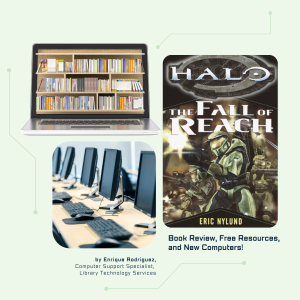We all have questions we want answers to. Those questions can be simple, like: what time does the library open on Saturday? What is the weather like this weekend? And what was the final score of the Islander baseball game? And usually, with a simple Google search, look at the weather app, or visit to the Islander Baseball team website, we can find the answers to our questions.
But sometimes our questions are more complex, and Google’s algorithm cannot give us the answer in a quick and dirty way. We need to FIND the answer ourselves, by searching, reading, listening, processing, synthesizing with our prior knowledge, and reiterating the process until we have an answer that satisfies our inquiry.
The process of finding information to these complex questions is not linear. It’s cyclical. It causes us to learn new information and try to apply it. For example:
Which functions should you use to create your computer program?
While searching Stack Overflow may give you many options, you must apply those options to your personal program to find the best solution.
Other times, questions may require searching in multiple places. For example, you will need to look at both sides of the argument to answer the question: How do I feel about banning books in school libraries? Or, how does media bias affect the news I watch and read?
When you have more complicated questions, finding information can be tricky. Here are 6 library hacks to move your strategic searching forward:
- Start early: Especially if it is research question for a class assignment, give yourself the time to explore and understand a question before trying to answer it. The more time you give yourself, the more informed and therefore authoritative your answer becomes.
- Search in various places: Different search engines will give you distinct results. For example, Google’s search bar will provide you with websites and documents that are related to your question, while the Library Quick Search gives you access to content Google does not index.
- Use filters: When searching using the Library Quick Search, you can filter by date, type, and subject. Google also has a list of refined web searching techniques that work similarly.
- Use social media: Especially if you need to see both perspectives of an argument, do not be afraid to see what people are saying on social media. While it may not be the most authoritative source, it can provide you with the perspectives and vocabulary to do a more advanced search down the line. Forums like Stack Overflow or Reddit can also be key places to see different perspectives and stories.
- Chase citations: Many sources of information also include a list of or links to citations that informed their own work. Use those resources for your own research as well.
- Ask for Help: Librarians are here so you are not alone in your search. If you get stuck, you have access to a librarian anytime of the day and night through our Ask Us chat service!
Next time you have a question you need answered, come back to these hacks, and see if they help you in your exploration of the topic.
Image created by I-Know Student Assistant Ellie Sullivan.
——————————————————————————————————————————————
Hyperlinks:
https://support.google.com/websearch/answer/2466433?hl=en
https://help.library.tamucc.edu/
Emily Sartorius
I-Know/Instructional Design Librarian


